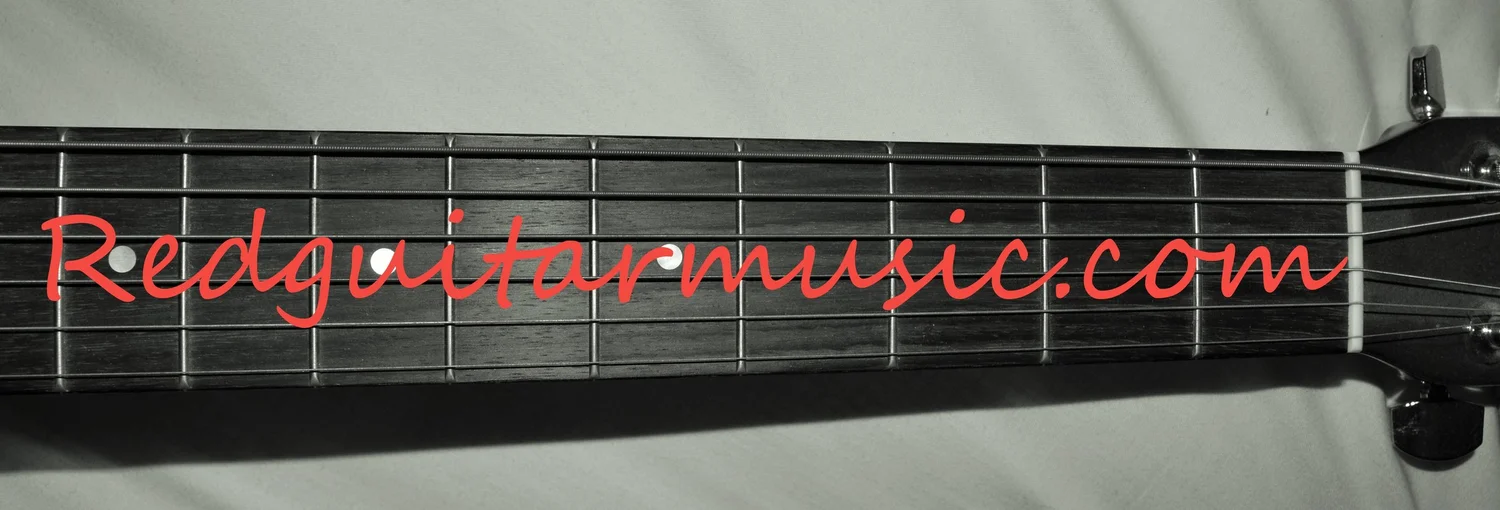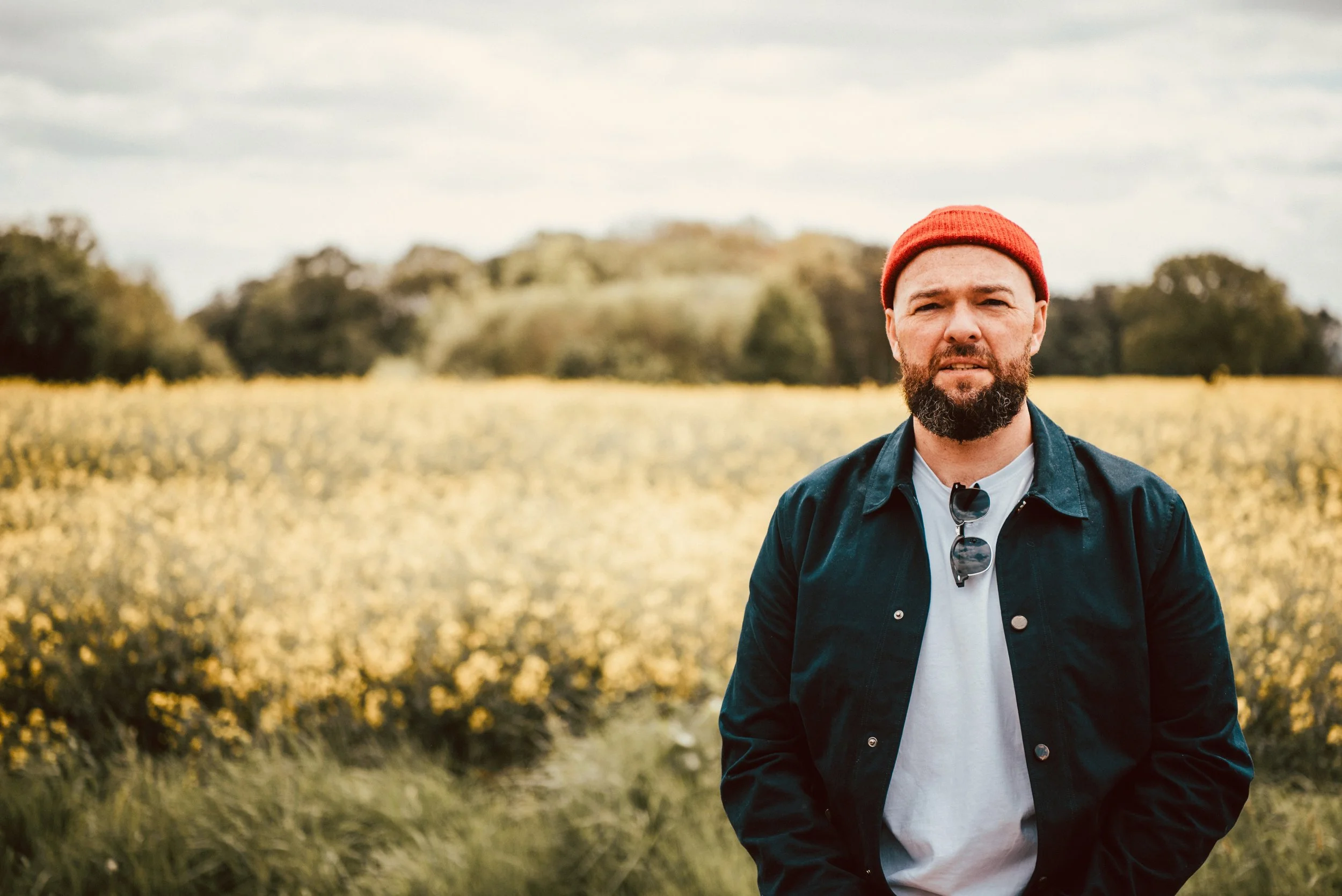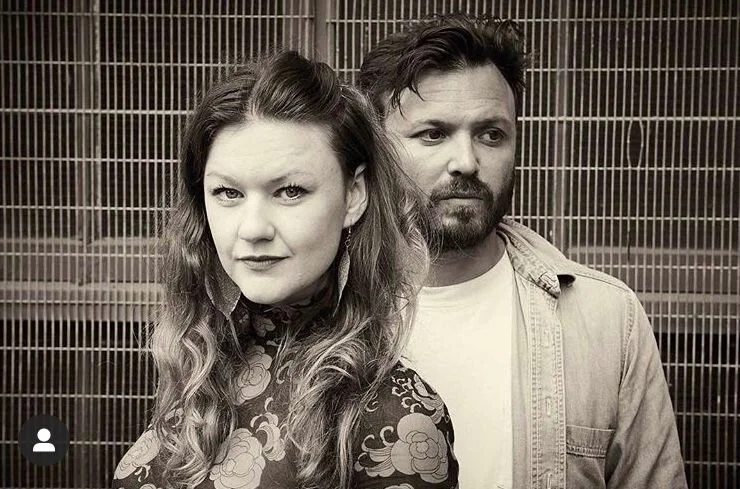The Baker's Dozen #28 Tim Bowness
Tim Bowness is probably best known for No-Man, the duo he formed in 1987 with multi-instrumentalist Steven Wilson, but this is only a small part of Tim’s expansive musical CV that includes a solo career (six albums and counting) plus work with David Torn, Nosound, White Willow and The Opium Cartel etc. One of these many and varied projects is Plenty a band originally formed in the mid-80s as a trio with Brian Hulse and David K Jones. It would be thirty years before Plenty would actually release their debut album ‘It Could Be Home’ in 2018, but their brand of melancholy indie-pop/art-rock in the vein of The Blue Nile and Talk Talk has a timeless quality and the trio are back with a new 2CD set due for release on June 25th 2021 the press release refers to as “Something old, something borrowed, but all blue” which sums things up rather nicely. RGM was pleased to catch up with Tim for a chat about his songwriting approach and their emotional impact, his early career plus recommendations for good TV shows and a fair bit more.
1. What is your earliest musical memory?
The earliest musical memories I have are
1) Being really moved at a very early age by the film music of John Barry, especially pieces such as You Only Live Twice and Capsule In Space. The haunting arpeggios ran riot around my 5-year-old brain.
2) Perhaps related to that, as a young child, I had a recurring dream that featured a haunting cinematic theme accompanied by a psychedelic swirl of colours (which would always resolve around mixed shades of blue). I always feel it’s a theme I'm still trying to write.
2. Do you remember the name of your first band?
I do. We had the rather obvious monicker of Silence. We were a collection of musical misfits coming together out of a desire to be in a band. There wasn’t much common ground beyond that. The guitarist loved Rush, the keyboard player was obsessed with The Stranglers, the bass player loved The Stranglers and Rush, while the drummer wanted to be in Weather Report. The singers I most admired at the time would have been David Bowie, Peter Gabriel, Julian Cope and Peter Hammill. For whatever reason, we ended up sounding like a very weedy early Fairport Convention! It lasted a couple of months.
Within 9 months of starting being in bands, I was in a Manchester trio called Still (another unoriginal name!). We got a lot of local radio play and there was something in the band’s odd combination of Electronic, Post-Punk, Progressive and Minimalist Classical influences that I can still relate to.
3. Which current artist do you hear and just go Wow?
Whether I go wow or not I’m not sure, but I have really enjoyed recent music by artists such as Nadine Shah, Max Richter, Angel Olsen, John Luther Adams, Thundercat, Richard Dawson, Floating Points and others. This year’s Black Country New Road album had some great moments on it as well.
4. Do you sit down to write songs or do you wait until your mojo comes to get you?
Both, but mostly the latter. At this stage, I prefer to wait for something to happen rather than writing for the sake of it. In other words, I prefer being driven by emotional need rather than the thought of adding just another song to my catalogue. It usually means that I can go six months writing nothing followed by six to nine months of writing a lot. That said, sometimes sitting down (alone or with others) with the deliberate intention of writing a song can take you in unexpected directions.
5. Big venue or small venue - what's your favourite to play?
I like both. Ultimately I prefer the controlled sound and intense atmosphere that a small theatre venue can generate, but the anonymity of playing to thousands of people at a festival affords a certain freedom that’s also enjoyable.
6. Who is the one artist you wish you could share a stage with (past or present)?
Miles Davis. It would be a delight to hear the different versions of Miles - from acoustic ballad harmon mute style Miles to wah-wah chaos Miles - joining in on certain pieces.
7. Bowie, Prince, Sinatra, Elvis which departed great means the most to you?
Though I have respect for all of those artists and own albums by all of them, it’s Bowie by a massive margin.
His music hit me the most emotionally and his constant stylistic shifts were very inspiring to me. He showed that working within Rock and Pop parameters didn’t have to mean bowing to creative stasis or public and industry expectations.
8. The musical landscape could change markedly due to the Covid-19 pandemic. How has the situation affected you and what do you feel will be its impact on the music business/live performance going forward?
I honestly don’t know. I’ve been very lucky that primarily being a recording artist, the absence of gigs hasn’t impacted on me much. I’ve done as much recording as I ever do. I do miss my infrequent performing though.
In reality, I think things will return to relative normality over the next two years, but there will be some negative consequences due to the number of people who’ve had to abandon their careers (both artists and technicians) and venues that have had to close for good.
9. Should music be free?
It’s complicated, but I think the bottom line is that format dictates form. There are always exceptions (interesting music is still being produced now, some people listen deeply regardless of how they come across music etc), but I feel the dominance of streaming has, more than ever before, led to the mainstream audience treating music as a background accompaniment to their day’s activities and mainstream artists writing ‘bangers’ to order to fit the streaming format and the audiences diminished listening attention span. Frequently, 11 writers will combine to create compositionally unambitious attention grabbers.
Rick Beato’s YouTube channel is well worth watching. He analyses the differences in chart music over the years. In effect, though there are good songs and good productions now, the average Pop song of the 1960s to the early 2000s had more going on (in terms of chords, rhythms and genre shifts) than the average Top 10 as a whole has now. For better or worse, seemingly cheesy Pop or R&B hits of the 1970s and 1980s are musically much more complicated than a lot of what succeeds now.
'The Formula’ has seemingly taken over and I think that the format people mostly listen to music via - streaming - is part of the reason for that.
Obviously, I’m talking about the mainstream rather than what’s happening in the margins of modern music or in genres like Classical, Extreme Metal and Jazz (where there’s still a lot to enjoy and get your teeth into).
Going back to the original question, the dominance of streaming has meant that the vast majority of musicians make nothing from their music. As music is still important in a lot of people’s lives and is also a significant contributor to the cultural and human experience, I still think it has value.
10. Can you remember the first record you bought and what have you bought recently?
Here’s a bit of cheating. I was asked these questions by the excellent My Vinyl Offering site.
Rather than me cut and pasting the detailed answers, here’s the link: https://www.myvinyloffering.com/offerings/tim-bowness-musician/
The answer is yes to the former and as for the latter, I still regularly buy LPs and CDs.I still listen to favourite artists such as the likes of Kate Bush, Blue Nile, Bowie, The Flaming Lips, John Martyn, John Coltrane, Steve Reich, Joni Mitchell etc and can still be deeply moved by music.
11. What was the last song that made you cry actual tears?
A terrible admission is that, it’s been a few songs of mine. There are some songs on the last couple of solo albums that have been emotionally inspired by hugely personal experiences. When I’m constructing albums, I’m obsessive about track order so I listen again and again to pieces. This can go on late into the night and if I’ve listened to one of the tracks that echoes the personal trauma I’ve experienced, due to sheer exhaustion I guess, I’ve been affected by it. There’s no doubt that the time you listen to things and the state you’re in can affect how you react to them.
12. Do you binge watch Netflix / Amazon / DVD box sets (any recommendations)? Do you have a guilty pleasure in Film or TV you’ll admit to watching and loving?
I don’t binge watch a series in a day or two, but I will watch things at a rate of one a day (or one every few days). I’m a slow binger!
Russian Doll on Netflix was great and The Good Place was an unusually thoughtful sitcom that I enjoyed. Calls on Apple TV is an original concept well executed.
My guilty pleasures would be either watching early comedies (1920s/1930s) with my son, or dystopian horror / sci-fi movies that only myself and my friend and collaborator Peter Chilvers seem to like.
13. What is the most important thing to you that you can see from where you are right now?
My book collection.































These days, with a seemingly inexhaustible amount of music available at the click of a mouse, it is easy to miss things in our search for instant gratification. The art of getting to know an album over repeated listens, allowing it to slowly reveal itself, is in danger of being lost. A case in point is the aptly titled ‘Modern Nostalgia’, the latest release from The Last Hurrah (!!), a project helmed by Norwegian musician/producer HP Gundersen. ‘Modern Nostalgia’ blends a distinctly European (Serge Gainsbourg/Marianne Faithfull) approach with the California sound of Gram Parsons and The Byrds, utilising a variety of singers and instrumentation along the way to reveal its charms. With this in mind, we caught up with HP Gundersen to learn more about HP and his collaborators in The Last Hurrah (!!).